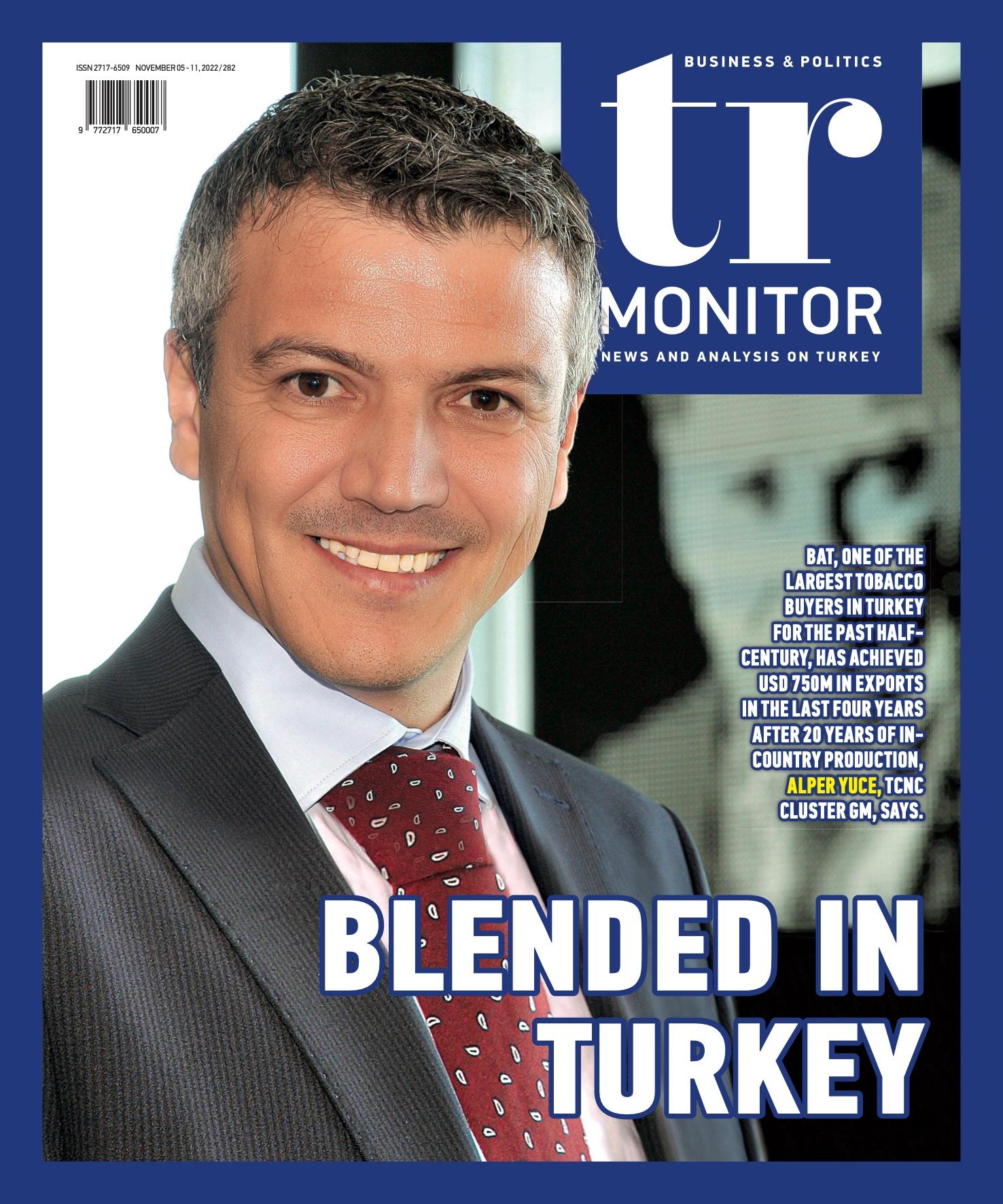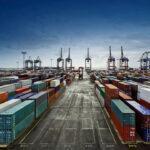By HANDAN SEMA CEYLAN
British American Tobacco (BAT) has for over half a century purchased oriental tobacco from Turkey. However, the company is now in its 20th year of production in the country. As a long-time investor in Turkey, BAT’s exports have reached USD 750m in the last four years with the help of its production expertise in the country, said Alper Yuce, BAT’s General Manager for the TCNC Cluster (Turkey, Caucasus, N. Cyprus). USD 2bn in investments made in Turkey over 20 years have helped to boost these exports.
After 20 years of production, the company now has a large organization with factories, supply chains, sales networks, and head offices in Turkey. However, everything started with BAT’s Tire factory, according to Yuce. “Our existence in the country was then cemented with the first export we made in 2006. Then, we made the biggest investment move in 2008, by placing the highest bid for the privatization of Tekel, Turkey’s tobacco and alcoholic beverages company,” he said, adding that the purchase was the second largest direct investment in Turkey at that time.
BAT’s Turkey journey continued with a single factory in Samsun established in 2010. Today, the Samsun factory is one of the most important of the company’s 30 factories, in terms of technology and infrastructure, thanks to investments made in the facility over the years. “BAT’s Turkey organization has reached a point where we can create around 4,500 jobs,” Yuce underlined. “Turkey will be an important center for our company, pairing the company’s potential with BAT’s vision of ‘Building a better future.'”
75% OF TOBACCO IS EXPORTED
Expanding on the ‘Building a better future’ motto of the company, Yuce said that it is more than just a vision. “We want a better future for all of us, and for all of our stakeholders. We take responsibility for this too. There are four main stakeholders we focus on: society, employees, shareholders, and the public,” he detailed.
BAT is a 120-year-old company and it has been purchasing orient-type tobacco from Turkey since 1950, Yuce said. “We are also engaged in agriculture in Turkey. We work with around 12,000 tobacco farmers in Turkey. This is an important ecosystem because we buy tobacco for our global operations from them,” he said. As one of the largest tobacco buyers in Turkey, BAT purchases 13,000 tons of tobacco per year through a company called Turk Tutun. “25% of this is used in our facilities in Samsun. The remainder is exported to other BAT companies around the world. The monetary value of this in exports is USD 100m a year,” Yuce said.
PRODUCING VIRGINIA TOBACCO IN TURKEY
Yuce also drew attention to the importance of the sociologic and economic aspects of the business. The company wants to further develop the training of its 12,000-farmer network and inform them about production techniques. Turkey grows the highest quality oriental tobacco, one of the three types of tobacco in the world. BAT is currently working on how it can bring and grow the other two species here. “Turkish tobacco is not used alone in cigarettes. A blend containing all three types of tobacco is needed for cigarettes. Turkish-type tobacco, which we call oriental, is used around 15-20% in amounts in each cigarette. Virginia tobacco is grown in Africa and America, and the tobacco we call Birley is mostly grown in America. We are working to find a suitable climate for these other tobacco types in Turkey,” Yuce said. The company has not yet found an answer to this but Virginia tobacco is the most likely to work, he added.
HEATED TOBACCO PRODUCTS MAY DOUBLE EXPORTS
BAT not only sees Turkey as a production and consumption market but also as an export base, Yuce said. Exporting to 30 countries from Samsun, BAT’s exports have reached USD 750m in the last four years, USD 136m of which was made last year alone. The company is sending products to the Gulf, Eastern Europe, and the Caucasus from Turkey. However, Saudi Arabia, an important market for the company, has stopped imports, and exports to Iran have also decreased dramatically. “We cannot produce heated tobacco products in Turkey due to legal regulations. If it opens up, we will double our exports quickly. If we can overcome this, our contribution to Turkey will grow even more,” he said.
***
Taxable losses reach TRY 50bn due to unregistered tobacco products
BAT’s TCNC Cluster GM, Alper Yuce, said that the consumption of smuggled and unregistered rolled cigarettes in Turkey exceeds 25% of the total market. “In other words, one out of every four cigarettes consumed is smuggled or unregistered. 80% of this consists of unregistered rolled cigarettes. Prices pushed upwards by rising taxes lead smokers to illicit and unregistered cigarette consumption. It seems that the tax loss caused by illegal cigarettes and unregistered rolled cigarettes will reach TRY 50bn by the end of this year,” he said. Yuce also emphasized that the state has taken important steps in the fight against illegal cigarettes. “The Breath Operation, which was carried out recently, revealed that large facilities were established to make a product known as rolled cigarettes. We hope that the increase in raids and the production of unregistered rolled cigarettes will be brought under control,” he said. One of the important ways of controlling illegal tobacco consumption is tax regulations, according to Yuce. Taxes on cigarettes increased a lot at the beginning of 2022 due to the formula related to PPI. “Fortunately, the tax increase on cigarettes for the second half of the year was kept at 10%. The formula linking tax increases to PPI was designed during the low inflation period. The level that PPI has reached in the last 1-1.5 years is far higher. In this case, we suggest calculating the increase in taxes on cigarettes independent from PPI and inflation,” he said.
***
Focus on renewables: Yuce
“BAT has taken important steps in sustainability. We have reduced our carbon footprint from the electricity we purchase at our production facility to zero by using renewable resources at our BAT Samsun factory. We have the AWS Standard and I-REC International Renewable Energy Certificate. We are working on obtaining our electricity from solar energy for our factory in Samsun, and we plan to implement this in 2023. We also encourage our distributors towards this end. Solar panels have already been installed in our Antep, Afyon, Balikesir, Bandirma, Edremit, Mersin, and Zonguldak warehouses. We also broke new ground by adding an electric vehicle to our fleet. This vehicle has now been put to work on Bagdat Avenue in Istanbul. In the coming period, we aim to replace our entire fleet with electric vehicles. That’s 1,200 vehicles. In addition, we are working to protect our farmers from climate change. Afforestation is one of our key focus areas.”










